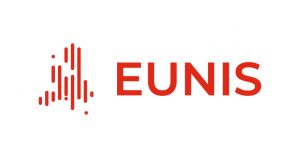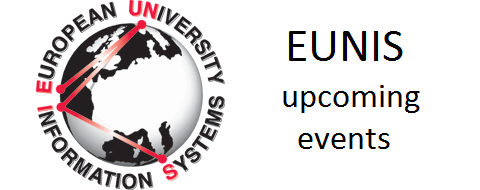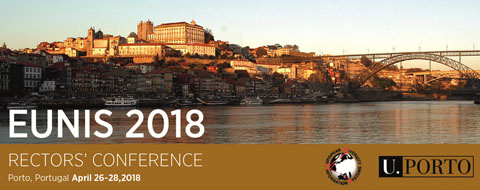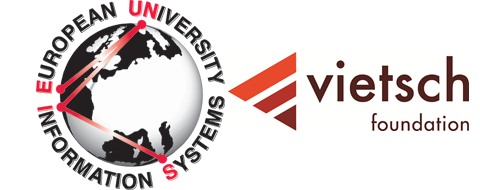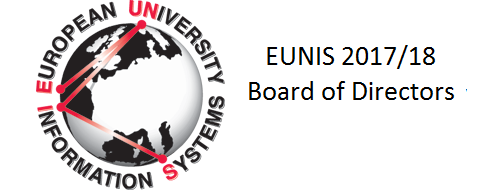EUNIS upcoming events: save the date! EUNIS Annual Congress held at the University of Münster, Germany has just ended up and the preparations for the next one are already ongoing! Save the date: 6-8 June […]
Category: Featured
EUNIS 2018 Rectors’ Conference: registration now open!
Invite your Rector to the EUNIS 2018 Rectors’ Conference entitled University 5.0 – Bridging people and technology that will be held on 26-28 April, 2018 at the University of Porto, Portugal. […]
Collabco survey on digital campus till 16th of June
Collabco survey on digital campus Collabco were delighted to have been at the EUNIS Annual Congress for the third year running and it was great to meet so many attendees […]
EUNIS signs collaboration agreement with the Vietsch Foundation
The Vietsch Foundation and EUNIS sign Memorandum of Understanding to jointly support advanced technology development for scientific research and higher education Valentino Cavalli, chair of the Board of Trustees of […]
EUNIS Board of Directors 2017/2018
The General Assembly elected the members to the EUNIS Board of Directors. The meeting was held on June 8th, 2017 during the EUNIS Congress in Münster. At the EUNIS Board meeting the following candidates […]
